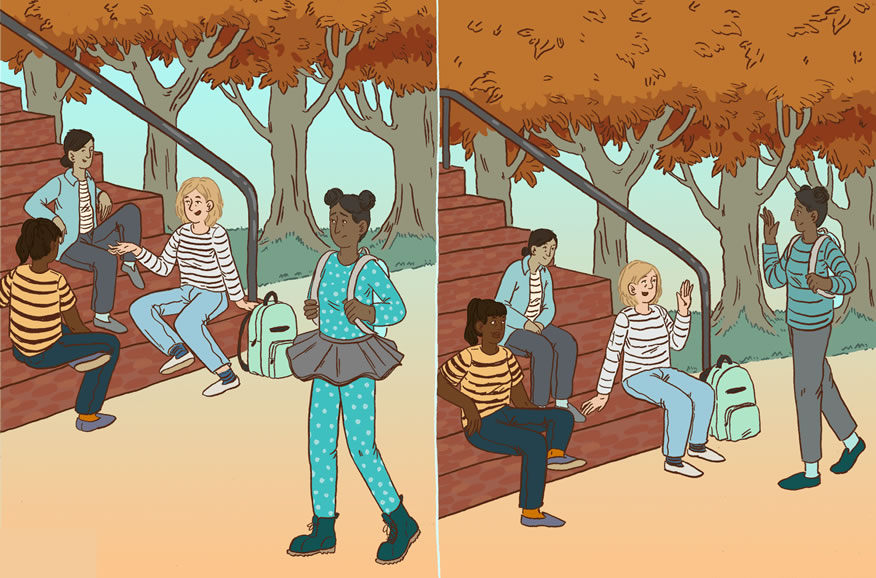October, 2020 One who associates with a person with bad behaviors risks falling into them. Gikuyu (Kenya) Proverb
 |
Muceera na mukundu akundukaga take. (Gikuyu, Kenya) Atembeaye na mtu mwenye tabia mbaya mwishoe huziiaga hizo tabia mbaya. (Swahili) Celui qui s’associe à une personne ayant de mauvais comportement, risque d’être tombé dans le même comportement. (French) One who associates with a person with bad behaviors risks falling into them. (English) |
Gikuyu (Kenya) Proverb
Background, Meaning and Everyday Use
The Kikuyu community is the largest ethnic group in Kenya. It is Bantu. The community is renowned for being aggressive in the business world. It is also renowned in the farming world. This ethnic group lives mainly in the country’s Central Region although they can be found in other parts of the country as well.
The use of proverbs, idioms, sayings and stories is part of the community life. Elders, for example, use them freely as they share information or teach their children about things around them (traditions). A good example is this Gikuyu proverb: One who associates with a person with bad behaviors risks falling into them. This teaching was mainly done around a fireplace. However and quite unfortunately, the fast encroaching urban culture and more so, changes in the young generation are fast affecting this ethnic mode of communication. The young generation is losing touch with this rich Kikuyu tradition.
Biblical Parallels
John 1:10-11: “If anyone comes to your meeting and does not teach the truth about Christ, do not invite that person into your home or give any kind of encouragement.”
1 Corinthians 15:33-34: “Be not deceived: evil communications corrupt good manners. Awake to righteousness, and sin not; for some have not the knowledge of God: I speak this to your shame.”
2 Corinthians 6:14-16: “Stop becoming unevenly yoked with unbelievers.”
1 Corinthians 5:11: “I am writing to tell you that you must not associate with those who call themselves believers in Christ but who sin sexually, or are greedy, or worship idols, or abuse others with words, or get drunk, or cheat people. Do not even eat with people like that.”
Proverbs 13:20-21: “Spend time with the wise and you will become wise, but the friends of fools will suffer.”
Proverbs 24:1-2: “Do not envy the wicked, do not desire their company; for their hearts plot violence, and their lips talk about making trouble.”
Proverbs 14:6-7: “The mocker seeks wisdom and finds none, but knowledge comes easily to the discerning. Stay away from a fool, for you will not find knowledge on their lips.”
Psalm 26:4-5: “I do not spend time with liars, nor do I make friends with those who hide their sin.”
Contemporary Use and Religious Application
The Kikuyu ethnic community, and in a particular those living in the rural setups, are fond of using proverbs, sayings, idioms and stories as their mode of communication. But the fast growth of other modes of communication such as other languages and Sheng, for example, are now common mainly among the young generation and common in the urban centers. This is fast affecting the languages usage/impact.
Apart from the elders in the community, the Christian Churches are equally making its efforts in promoting this mode of ethnic communication among the Kikuyu, but the somewhat “negative” environment around it is equally affecting it. In this particular proverb, the moral teaching is making every effort to avoid copying bad habits from people one gets to ‘associate’ with any level in one’s life — old or young.
The proverb encourages attentiveness to, and careful listening to, a wide variety and diversity of situations and people.
Francis Njuguna
Nairobi, Kenya
0720-434819
Email: osnjuguna@yahoo.com
Illustrations provided by:
Charles Gikera
Nairobi, Kenya
0722-658097
Email:
gikera@itura.net
gikera.charles@itura.net
